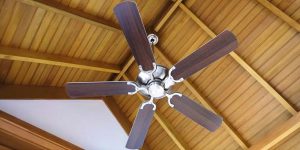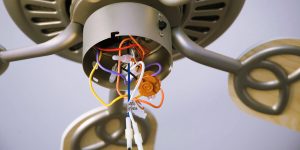Many of us face the problem of keeping our house cool. And there is always a debate about using a ceiling fan vs. ac. In this article, I’ll go over the advantages and disadvantages of both options to help you determine the range of your needs. I’ll compare ac vs. fan costs, energy efficiency, health benefits, and more, and you’ll be able to see which one to choose. So, I invite you into the world of ceiling fans and air conditioners.
Usage of a ceiling fan
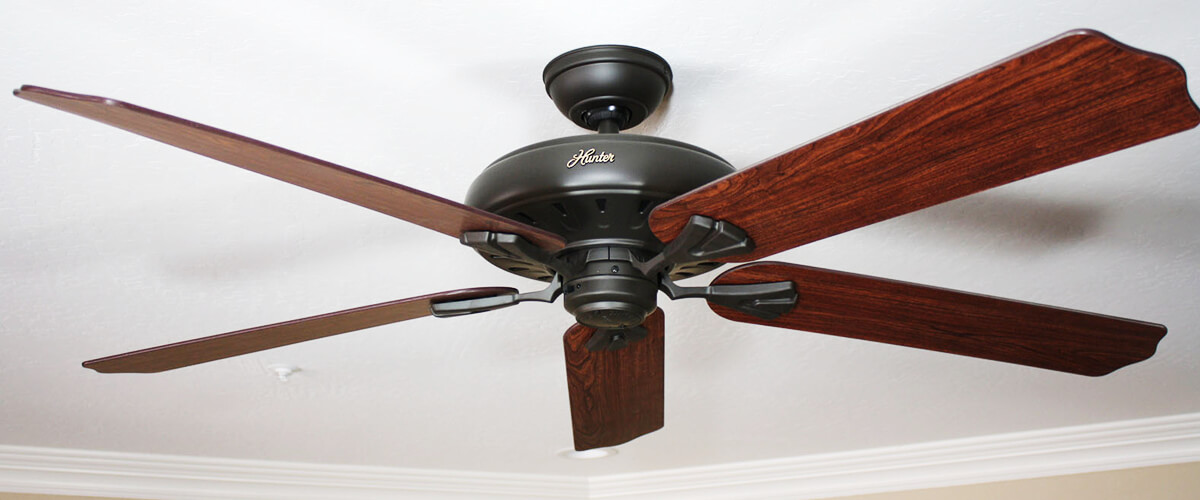
The ceiling fan is an original mechanical device designed to circulate air in a room by rotating the blades at different speeds. Creating a gentle breeze helps evaporate sweat from your skin, leaving you with a pleasant feeling of coolness. Ceiling fans really shine in rooms with moderate temperatures and are especially effective in tropical or humid climates, where moisture in the air can be your worst enemy. Imagine, for example, a nice day with temperatures around 80 degrees Fahrenheit – a ceiling fan can completely change your comfort level, turning a stuffy room into a pleasant oasis.
It’s worth noting, however, that ceiling fans may not be the most effective option for cooling “boiling rooms”. In such cases, they may bring some relief, but the effect may not be as great as one would like.
Usage of an air conditioning unit
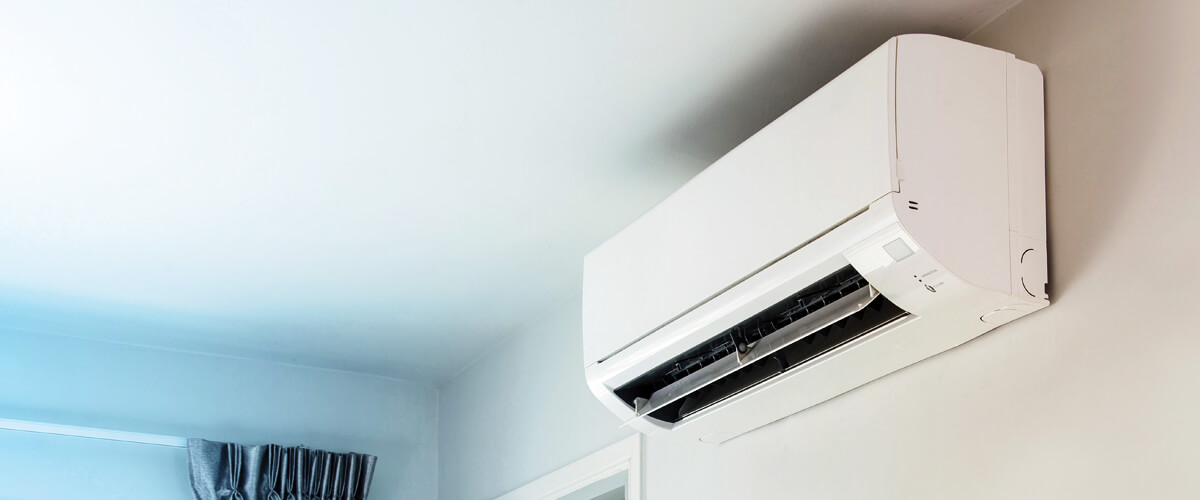
Air conditioning systems are nothing short of a modern marvel that works wonders to turn a humid environment into a cool and comfortable haven. These ingenious systems extract heat and moisture from the air, creating a crisp, refreshing atmosphere in your living space. Imagine a scorching day when the temperature is over 80 degrees – an air conditioner can quickly lower the temperature to a more comfortable level, providing a welcome respite from the relentless heat.
Air conditioners are especially well suited for hot climates because they can cool a room quickly and efficiently. So whether you’re returning indoors after a day in the scorching sun or trying to focus on work in an overheated office, air conditioning systems provide the coolness you need for comfort and productivity.
However, you need to consider the potential drawbacks of air conditioning systems. They can be more expensive to purchase and operate than ceiling fans, which can hit your wallet over time. In addition, the energy consumption associated with air conditioners is significantly higher, resulting in a more significant environmental impact. While they provide immediate and substantial cooling, cost and environmental implications are factors to consider.
Ceiling fans vs air conditioning: what to choose?
Choosing between a ceiling fan and an air conditioner involves carefully evaluating various factors. Let’s explore the difference between fan and ac to help you make an informed decision.
| Factor | Ceiling Fans | Air Conditioning Units |
|---|---|---|
| Cost | More affordable (purchase and operation) | More expensive |
| Energy Efficiency | Higher energy efficiency (consume less energy) | Lower energy efficiency (consume more energy) |
| Cooling Power | Lower cooling power | Higher cooling power |
| Maintenance | Less maintenance required | More maintenance required |
| Health Benefits | Improve air circulation and ventilation | Filter out dust and allergens |
| Noise Level | Generally quieter | Generally louder |
| Installation | Easier and less expensive | Often require professional installation and tools |
| Flexibility | Suitable for various spaces, including outdoors | Primarily for indoor use |
| Design | Wide variety of designs, colors, and styles | Typically unobtrusive and less customizable |
| Environmental Impact | Lower energy consumption, can use solar power | Higher energy consumption, contribute to emissions |
| Effect on Air Quality | Circulate and ventilate air, no filtration | Filter allergens, may affect air quality if not maintained properly |
| Longevity | Longer lifespan with proper maintenance | Shorter lifespan (10-15 years) |
Ultimately, choosing between a ceiling fan and an air conditioner depends on factors such as climate, humidity, personal comfort, room size, layout, noise level, and energy costs. I would recommend a ceiling fan as the better solution for those who live in temperate climates and for whom energy efficiency is important. However, if you live in a hot or humid environment and need powerful cooling and air filtration, I’m convinced an air conditioner better serves you.
Remember, you can combine both systems’ benefits by using a ceiling fan and air conditioner simultaneously to optimize cooling and energy efficiency.
Combining air conditioner and ceiling fan for optimal cooling
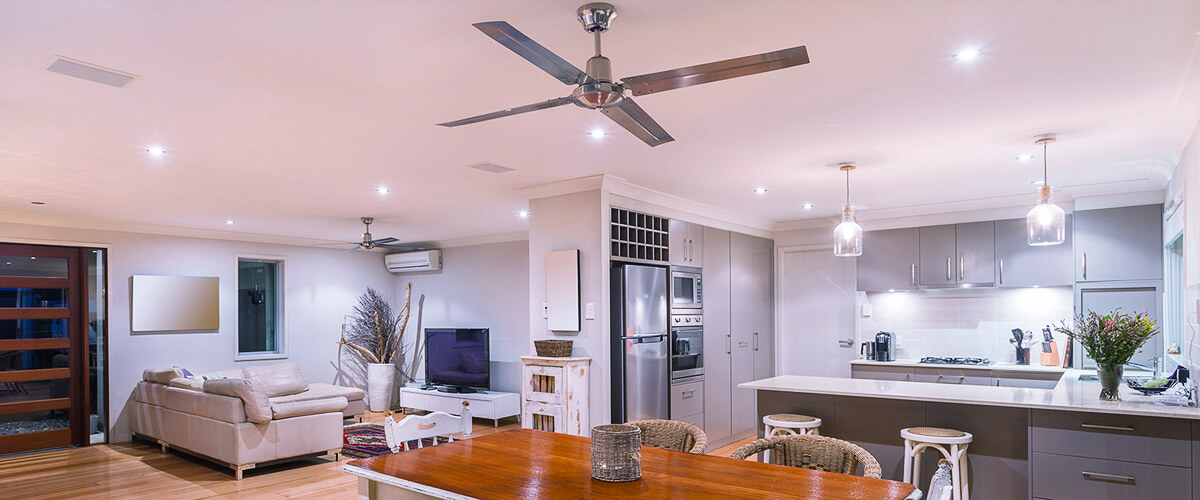
In my experience, using an air conditioner and ceiling fan simultaneously can be safe and effective in maintaining a comfortable room temperature. By working together, they create an ideal cooling system, maximizing the benefits of each device while compensating for its shortcomings.
When I tested this approach, I found that the ceiling fan helped circulate the cool air produced by the air conditioner more evenly throughout the room. As a result, the air conditioner didn’t have to work as hard, which allowed me to set the thermostat at a slightly higher temperature. This, in turn, led to energy savings and reduced electricity bills.
Let’s examine some pros and cons of using an air conditioner and ceiling fan at the same time:
Pros
- Enhanced comfort: By combining the air conditioner’s cooling power with the air circulation provided by the ceiling fan, you can achieve a more comfortable and uniform temperature throughout the room.
- Energy savings: With the ceiling fan helping distribute cool air, the air conditioner doesn’t have to work as hard, potentially resulting in reduced energy consumption and lower electricity bills.
- Improved indoor air quality: The combination of the air conditioner’s filtering capabilities and the ceiling fan’s air circulation properties can contribute to better air quality in the room.
- Adaptability: Depending on the weather and your comfort preferences, you can easily switch between using both devices or just one, giving you more control over your home’s temperature.
Cons
- Increased energy consumption: While using both devices can save energy, operating two appliances simultaneously will inherently consume more energy than using only one.
- Noise levels: Although ceiling fans are generally quiet, combining their noise with the air conditioner’s sound might bother some people, particularly in bedrooms or quiet spaces.
- Maintenance: Operating an air conditioner and a ceiling fan will require maintaining two separate devices, which could mean additional time and effort.
When considering using an air conditioner and ceiling fan together, it’s essential to factor in the room size, layout, and your personal comfort preferences. In some cases, one device might suffice, while combining both might be the key to achieving the perfect temperature in others.

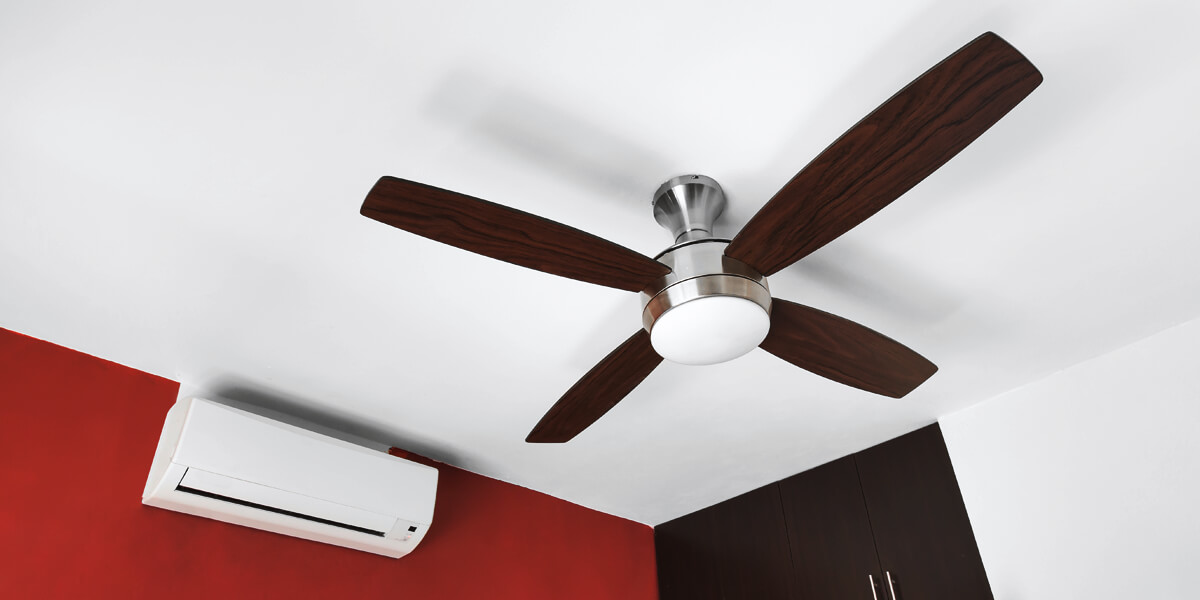
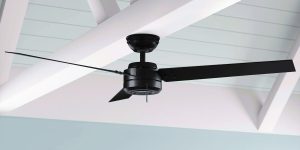
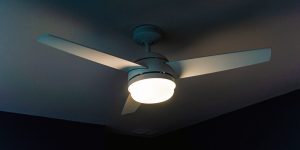

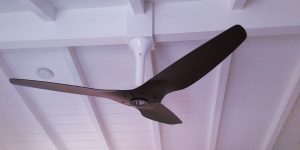
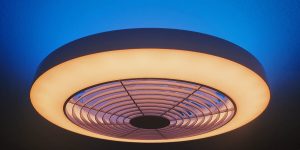

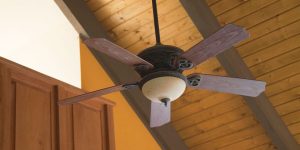

![How Many Blades Should a Ceiling Fan Have? [3 vs 4 vs 5-Blade]](https://www.kennedyproductions.com/wp-content/uploads/2023/08/does-the-number-of-blades-on-a-ceiling-fan-matter-300x150.jpg)
